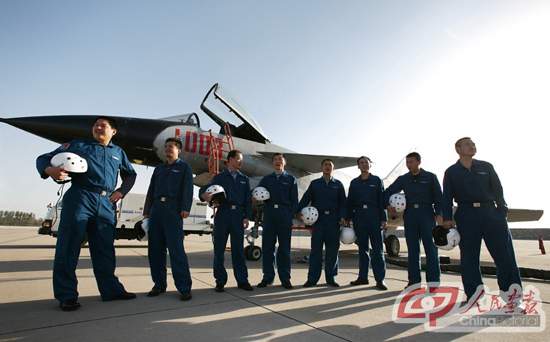A look at China's test pilots
According to Zhang, test pilots need to thoroughly understand the objectives of the tests designed by the engineers and also need to be able to describe the flight experience accurately and completely. In addition to their flying skills, they also need specific aero-engineering knowledge and excellent communication skills.
A growth industry
Zhang mapped out an ideal training program for test pilots, based on his own experience. First, they should graduate as engineering majors, and then learn to fly in aviation school. After that, they should join the air force and accumulate combat knowledge. Finally they reach the level of test pilot and participate in aircraft design as well as undertaking test flights.
As China becomes stronger and the world situation evolves, the military aviation industry is developing rapidly. As commander of the test pilot regiment, Zhang clocks more than 200 hours of test flights every year. Fighter test pilots fly 350 hours annually on average, while freighters pilots make clock up to 500 to 600 hours.
 |
|
Test pilots pose for a group photo. |
Zhang said the regiment is in need of new bloods because most of the current crop of test pilots are already in their forties. In 2006, China opened a new training program for test pilots. Competition for places was intense. Twelve trainees were chosen from more than 200 candidates. After a two-year training program, only eight qualified as test pilots and just four were admitted to the regiment.
Gu Bo, born in 1980, is one of the top graduates of the class. Although he is the youngest pilot in his regiment, Gu looks more mature than other young men of the same age. In Gu's eyes, being a test pilot means facing more challenges and requires more passion and commitment.
Gu's dream is to become a top-ranking expert test pilot. "Don't look on responsibility as a burden. You can fulfill your duties without being aware of it. The main thing is having the capacity to enjoy your work; that's the route to achievement and rewards," said Gu.
 0
0 







Comments